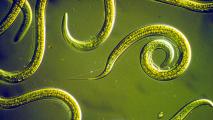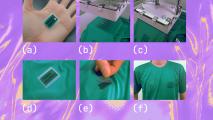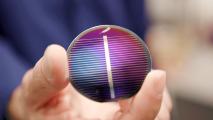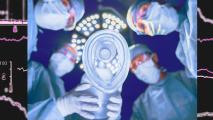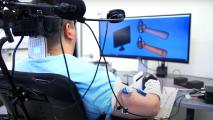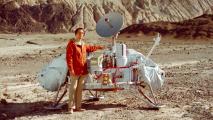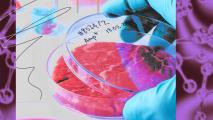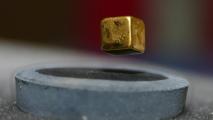
The Digital Frontier
Advancements in 20th century medicine reshaped society and made good health an expectation, not an exception. Now, 21st century breakthroughs may end disease, reverse aging, and restore sight and hearing — perhaps sooner than we think.
More
Can we burn metal for heat, instead of fossil fuels?
Researchers are looking at ways of boosting the efficiency of burning iron so that the metal can be used as an alternative energy source.
Series|
Challengers
Substack vs. The Giants
Did algorithms, ads, and over-moderation ruin the internet? One company thinks they know the answer.
Nematodes survive 46,000 years on ice
A pair of nematodes from the Pleistocene survived in the Siberian permafrost by entering a survival state known as cryptobiosis.
Fragile X syndrome often results from improperly processed genetic material
Researchers discovered that the mutated gene responsible for fragile X syndrome is active in most people with the disorder, not silenced.
What body shops will look like once electric cars take over
Electric vehicles are selling at record highs. Here’s how mechanics are adapting.
New workout sensor tells you when you’re at risk of heat stroke
A wearable that alerts users when they’re at risk of heat stroke could be a game changer for health monitoring, if it can become commercial.
How mechanics can prepare for the electric revolution
Electric vehicles are selling at record highs. Here’s how mechanics are adapting.
NASA gives Blue Origin $35 million to turn moon dust into solar cells
A technology that autonomously fabricates solar cells out of lunar regolith just earned Blue Origin a $35 million NASA contract.
Study finds tracking brain waves could reduce post-op complications
Researchers found brain wave signatures that could help determine when patients are transitioning into a deep state of unconsciousness.
AI now lets you have real conversations with NPCs in video games
Future video games could feature a near-infinite number of possible storylines.
AI-powered brain implant restores feeling, movement in man with paralysis
A first-of-its-kind AI-powered brain implant has restored movement and feeling in a New York man with quadriplegia since 2020.
NASA may have accidentally killed the only life we ever found on Mars 50 years ago
Life may have been discovered on Mars almost 50 years ago, but it could have been unintentionally destroyed.
Our planet is swimming in plastic. Here’s how we fix that
You’ve probably heard about the microplastic problem. But it’s not hopeless — this organization is cleaning up rivers.
Targeted therapy kills every type of cancer in the lab
City of Hope researchers are trialing a targeted therapy shown to kill more than 70 types of cancer in preclinical tests.
Want to lose weight? Try eating like a pig
From pig studies, we’ve learned that calorie counting matters, and eating many smaller meals is preferable to a few larger ones.
Northern white rhinos are set for extinction. Only a technological moonshot can save them.
Project BioRescue aims to create the reproductive technology necessary to resurrect the northern white rhino. But time is running out.
Australian military is funding a computer chip merged with human brain cells
The Australian military is funding research into “organoid intelligence” that involves stimulating lab-grown mini-brains with electrodes.
Lab-grown meat techniques aren’t new
Cell cultures are common tools in science, but bringing them up to scale to meet society’s demand for meat will require further development.
Theory proposes remnants of a destroyed planet lurk near Earth’s core
The two vast “blobs” buried in the Earth’s mantle could be the remains of a planet some believe crashed into Earth 4.5 billion years ago.
Ask Ethan: Is LK-99 the holy grail of superconductors?
The holy grail of superconductor science is to find a superconductor at room temperature and standard pressure conditions. Is LK-99 the first?
Subscribe to the newsletter





